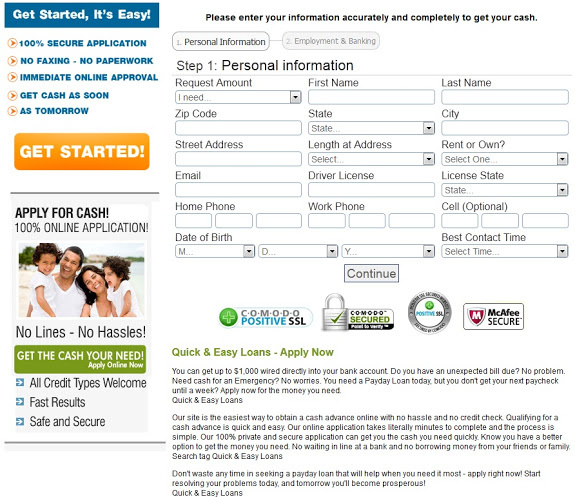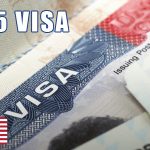International Tax Planning for Payday Lenders
The US tax costs for Payday lenders in the United States is harsh. The interest component of your income is taxed where the borrower is located. This means you get to file returns is every state and deal with a web of complex tax laws.
Then, the portion of your income which is not considered interest, is taxable where you and your business is located. This must be in the United States, so you’re paying 35% corporate tax plus up to 12% in state tax on net profits.
What if I tell you that you can operate in the United States and pay only 4% on the majority of your net profits? That you can get a banking license and operate the business through this entity while still maintaining your 4% corporate tax rate?
That’s exactly what I’m saying. You can setup a fully licensed credit union in US territory Puerto Rico and make loans throughout the United States. Then you structure an Act 20 company in Puerto Rico to service the loans, which is taxed at 4%. The credit union breaks-even or makes a small profit for its members, but the bulk of the income moves to the Act 20 company.
This structure will allow a large payday lender to exchange their 40% US tax rate on corporate profits for a 4% tax rate in Puerto Rico.
Puerto Rico is the ONLY jurisdiction such a tax deal can be had. If you set up offshore, US Federal tax laws apply to your US owned business. Plus, it’s nearly impossible to make loans into the United States from abroad.
Puerto Rico is unique. It’s a US territory, so US Federal laws apply. This means that forming a payday loan company in Puerto Rico is equivalent to forming the company in any US state… with one major exception… taxes.
Section 933 of the US tax code exempts any income earned in Puerto Rico from US taxes. A business operating from Puerto Rico pays only Puerto Rican taxes, not US Federal income taxes.
For this reason, Puerto Rico can offer payday lenders a deal. Setup your company here, negotiate an Act 20 business license, hire at least 5 employees on the island, and your Puerto Rico sourced income will be taxed at 4%.
To clarify: You will still pay US income tax on the interest component. It’s the business component of your corporate profits that are taxable in Puerto Rico at 4%. To qualify for this 4% rate, the work to generate those corporate profits must be done from Puerto Rico.
Here’s how you might allocate income between interest income / US source income and corporate income / Puerto Rico sourced income taxable at 4%:
Some tax experts take the position that the interest component of payday loans should be about the same as that of a junk bond. That’s a rate of around 6% to 10% per year.
However, payday loans often have an effective cost to the borrower of 200% to 600% per year. The average cost of a payday loan that rolls over a few times is 400%.
Thus it can be argued that US source income taxable where the borrower is located is 10% while the balance, 390% is Puerto Rico sourced income.
In very rough numbers, a payday lender might be able to move 98% of their income out of the Federal tax system and into the more favorable Puerto Rico tax regime. This will reduce your tax rate from 40% to 4% on any Puerto Rico sourced income.
Now for the kicker: if you’re willing to move to Puerto Rico, and qualify under Act 22, you can withdraw the profits of your Act 20 company tax free.
Also, any capital gains earned on personal investments you make after becoming a resident of Puerto Rico are taxed at zero. That’s right, your personal income tax rate on capital gains is 0% as a resident of Puerto Rico.
To be considered a resident of Puerto Rico, you must spend at least 183 days a year on the island and buy a home there. Basically, you must give up your home base in the United States and move your life to Puerto Rico.
I’ll conclude with a quick note on Act 273 banks.
Those who follow my blog know that I’m a big proponent of Puerto Rico’s offshore bank license, referred to as an Act 273 bank license. This is an excellent option for those looking to setup an offshore bank that doesn’t accept US clients or doesn’t make loans.
The reason Act 273 doesn’t fit the payday loan model is because such a bank would require FDIC insurance and all manner of Federal regulations would apply. Any US bank, even a 273 bank in Puerto Rico, that takes deposits, makes loans, and accepts US clients, must apply for FDIC. This is impossible for most payday lending banks.
A credit union in Puerto Rico is not obligated to apply for FDIC. This is why I recommend the credit union combined with an Act 20 management company for a payday lender looking to redomicile their business to a low tax jurisdiction.
I hope you’ve found this post on international tax planning for payday lenders to be helpful. For more information, please contact us at info@premieroffshore.com or call us at (619) 483-17083.
You might also find this article interesting: How to operate an investment fund tax free from Puerto Rico
The above is a very general summation of complex tax issue and the related sourcing rules. Each payday loan company will have a different taxable rate. I strongly recommend you research this matter carefully and secure an opinion letter from a top firm before making any decisions.











Leave a Reply
Want to join the discussion?Feel free to contribute!